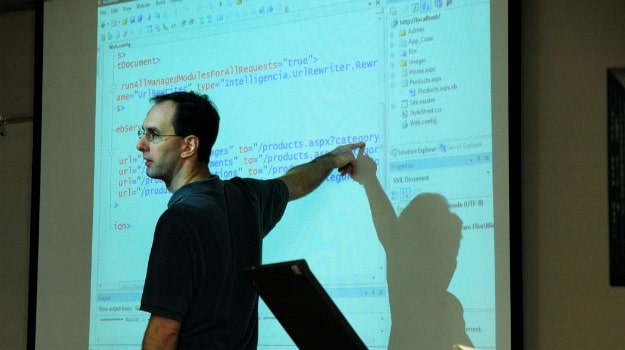
Search the latest economics teaching jobs here.
As a further education (FE) economics teacher, you will play an integral role in helping students become economically literate. Students will also be helped in understanding how and why markets work. Economics teachers will teach students how to understand the price mechanism model, globalisation and different forms of government intervention, which includes taxation, microeconomics, macroeconomics and regulation.
Economics is a key subject on the syllabus of FE centres. It is a subject that “relates to every aspect of our lives, from the decisions we make as individuals or families to the structures created by governments and firms”.
The syllabus at Hereford College offers a course breakdown that is common across FE institutions. Real world economic issues covered include:
· How prices are determined?
· Why energy prices rise and fall?
· The effect on the UK economy of boom or bust in Europe
· How inflation works
· How the negative aspects of economic growth, such as rising inequality or increased pollution, are caused
Economics A-levels are a common spring board for students wishing to study the subject at university level. FE economics teachers facilitate this transition.
The Royal Economic Society (RES) unveiled its medium-term strategy to run until 2023 in 2018. The institution’s key aim is to promote the study of economic science, especially in young adults. An integral take-home from the strategy is to engage young people through a greater connection with social media. The RES provides valuable resources for FE economics teachers.
Most candidates applying for FE economics jobs will be required to have completed a teaching qualification, such as a postgraduate certificate in education (PGCE). Some will be able to substitute the qualification for relevant work experience. In fact, experience in the economics sphere is always seen as a positive from an employer’s point of view.
A career in economics can prove to be highly financially rewarding for students pursuing this path. According to Hereford Sixth Form College: “Economics graduates are amongst the most highly paid and the subject is useful for many careers including finance, banking and retail.” Therefore, studying economics at FE level should be an easy sell to students
Away from the private sector, economists are also currently in high demand in the public sector. Leading labour market economists were offered £1,000 per day to join a newly established skills and productivity board under the remit of the Department for Education.
The average salary for an economic lecturer in the UK differs depending on which source is cited. For example, according to Glass Door, the average salary for this role is £28,468.
This average goes up to £44,810, according to Neuvoo. The range goes from £27,964 for entry level positions to £58,788 for the most experienced lecturers, with salaries differing depending on location — those in London are higher.
Assistant professor salaries in the UK come in at an average of £43,879. The typical tenure for an assistant professor stands at 1-3 years. Associate professor salaries in the UK, meanwhile, stand at £52,628. Both of these average salaries are general rather than economics specific.
Find economics teaching jobs here.
https://exe-coll.ac.uk/course/economics/
https://www.res.org.uk/about/strategy.html
https://www.hereford.ac.uk/explore-courses/courses/economics/
https://feweek.co.uk/2020/08/18/dfe-advertises-for-members-for-new-skills-and-productivity-board/
https://www.glassdoor.co.uk/Salaries/economics-lecturer-salary-SRCH_KO0,18.htm
https://neuvoo.co.uk/salary/?job=Lecturer%20Economics
https://www.indeed.co.uk/salaries/assistant-professor-Salaries
https://www.indeed.co.uk/salaries/associate-professor-Salaries
https://www.aocjobs.com/jobs/teaching-lecturing/economics
AoCJobs, part of the Association of Colleges, connects teachers and support staff with schools and colleges for online job opportunities.
